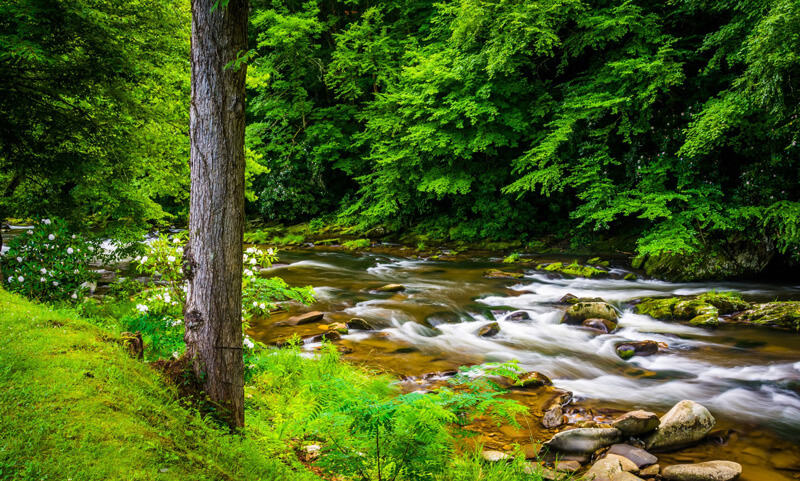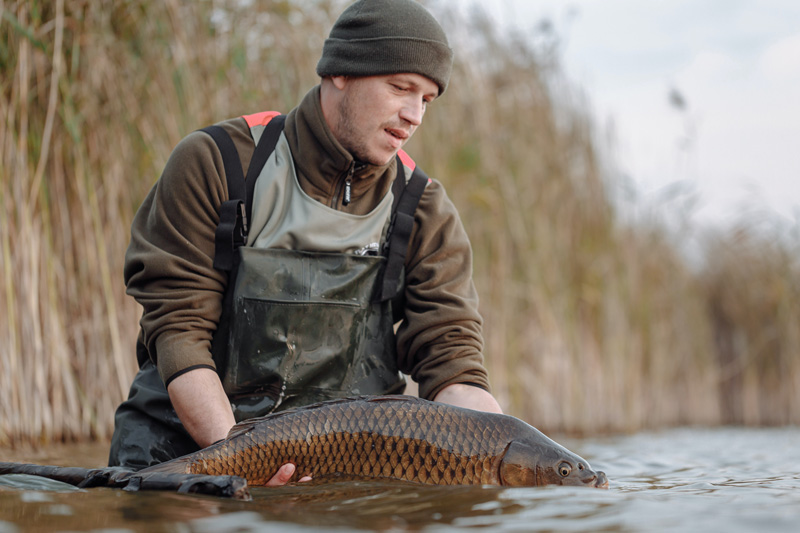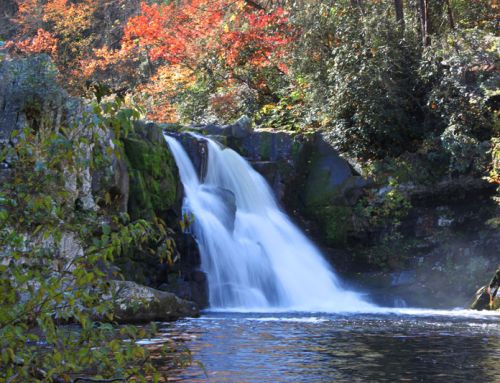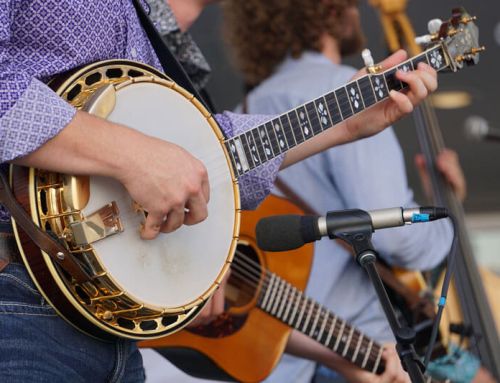There’s nothing more peaceful than winter fishing in the Great Smoky Mountains. You cast your line into the clear waters of a stream that cuts its way through snow-covered banks – a blanket of white covering the woods with a layer of peace and quiet. The only sounds are the burbling of the stream and the soft wind blowing through maple and poplar trees whose stark white trunks stand out against the dark hues of evergreen trees. More often than not, anglers find they have the river to themselves as they embrace the solitude and tranquility. Just be sure to dress in layers and bundle up!
What Makes Winter Fishing in the Smoky Mountains So Great?
There’s year-round fishing available in the Smokies, and winter is a fantastic time for catching trout. The area’s streams are home to all wild Brook Trout, Brown Trout, and Rainbow Trout. And these big fish love cold weather.
Big trout are typically nocturnal feeders, but in winter they switch habits and feed during the day when the most food is available. Winter is spawning season, and the water is filled with hungry fish who will chomp down on one tasty fly after another.
Try your hand at either wading or drift boat fishing. Wade fishing allows you to focus your efforts on specific riffles and runs, where you can use a combination of dry flies and nymphs to catch big trout. Or hop into a drift boat to cover more miles, get access to thousands of fish, and -maybe most important – stay dry and warm.
Where to Go Winter Fishing in the Smoky Mountains

Raven Fork, Cherokee
Tuckasegee River
The Tuckasegee River on the North Carolina side of the Smokies is an expansive and meandering tailwater river with between 17,000 to 18,000 trout per mile. There’s a 7-mile stretch that is a state-managed Delayed Harvest section, which keeps these waters filled to the brim with Brook, Brown, and Rainbow Trout. The odds are good you’ll catch the Grand Slam of all three here.
Cherokee, NC
Also in North Carolina, you’ll find the Raven Fork, one of the most desirable destinations for big trout in the Smokies. Not only is it a breathtaking setting with great roadside access and easy wading, but this spot is also an angler’s dream for world-class trophy trout fishing. The designated fly fishing only section is home to the biggest trout in all of the Smoky Mountains. Don’t be surprised if you snag the fish of a lifetime with brown trout measuring in the 30-inch range. Top off an epic day of winter fishing in the Smoky Mountains with a glimpse of the famed wild elk herd that roams through the woods of Cherokee.
Gatlinburg, TN
Over on the Tennessee side, Gatlinburg is a great spot for tourists who want to do a little bit of winter fishing during their Smoky Mountain vacation. The town has special Delayed Harvest Regulations that last through March 1st, which means the waters are filled with plenty of big trout. Keep in mind, though, that this is a catch and release only section, and you’re required to use artificial lures or flies with a single hook. Since most of the fishing takes place right in the middle of town, a hot toddy (link to hot toddy article) or a warm cup of cocoa is only steps away – making this an ideal winter fishing spot.
Smoky Mountains National Park
Winter fishing in the Great Smoky Mountains National Park is something truly special. The park is beautiful this time of year, and you’ll rarely see another fisherman. The serene setting alone is worth the extra layers. And when the afternoon temps get a little warmer, you might find hatches of blue-winged olives, little winter stoneflies, and caddis that can give you one of your best fishing days ever.
Fishing License Requirements
All anglers must possess a valid state fishing license or permit in Tennessee or North Carolina. (Either a Tennessee or North Carolina state license is valid if you’re fishing inside the Great Smoky Mountains National Park and no trout stamp is required.) Special permits are required for fishing in Gatlinburg and Cherokee.
North Carolina License Requirements
Residents and nonresidents age 16 and older need a license. Residents age 70 and older may obtain a special license from the state. Buy a license from the state government of North Carolina.
Tennessee License Requirements
Residents and nonresidents age 13 and older must have a valid license. Residents age 65 and older may obtain a special license from the state. Buy a license from the state government of Tennessee.
Please make sure to check the state’s daily bag and possession limits. If you’re under 16 in North Carolina and under 13 in Tennessee you are entitled to the adult daily bag and possession limits and are subject to all other regulations.




